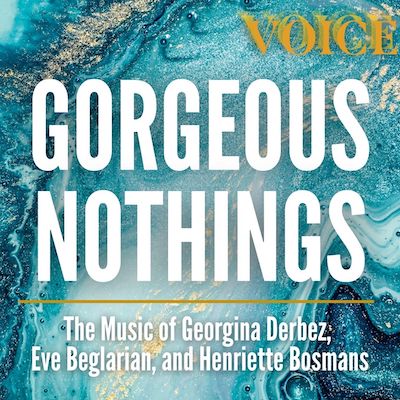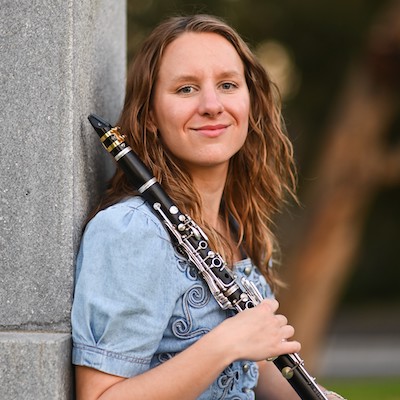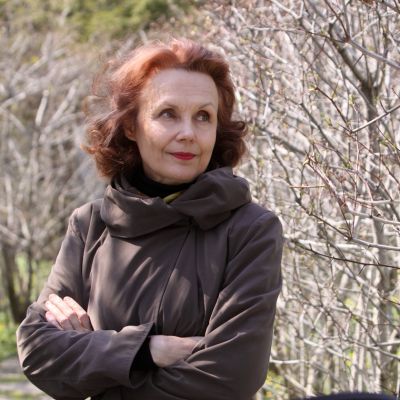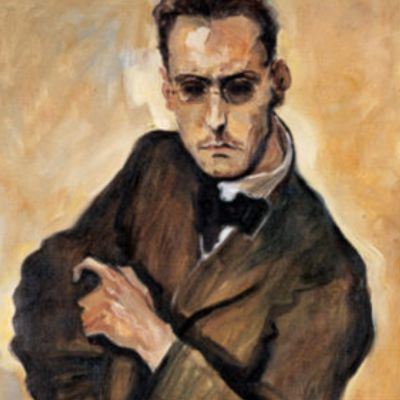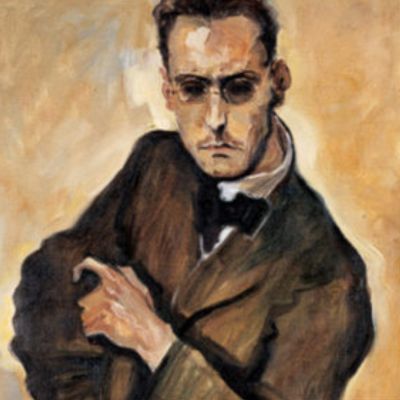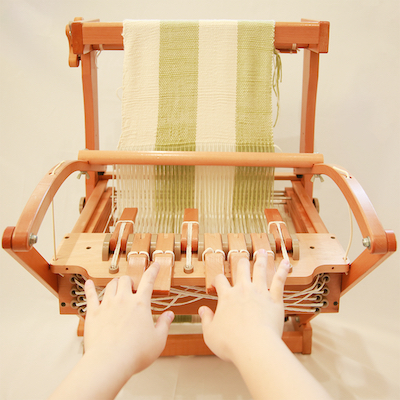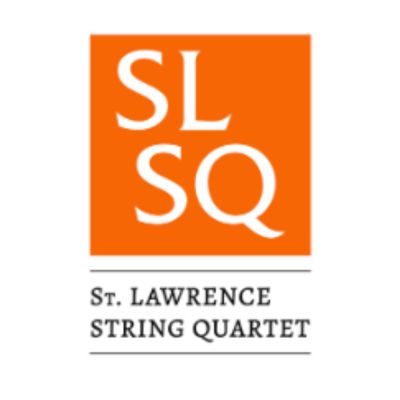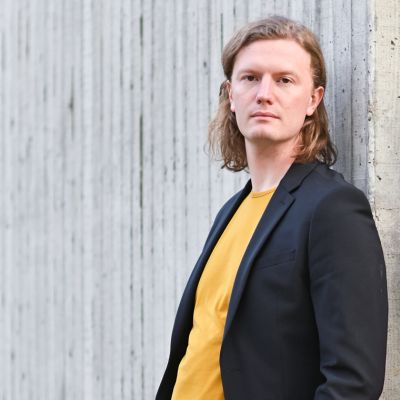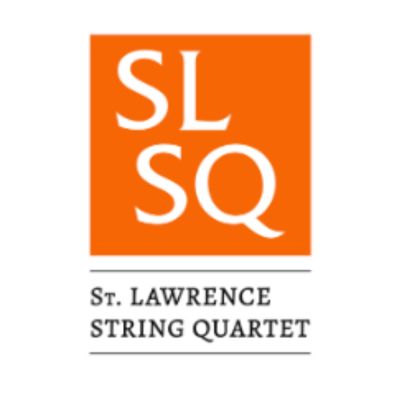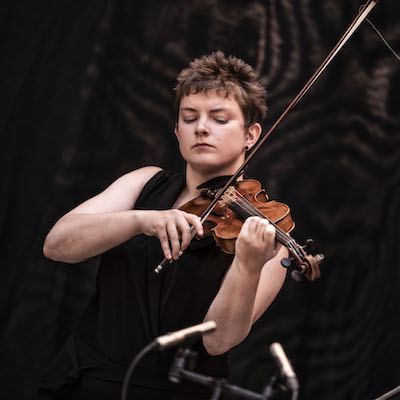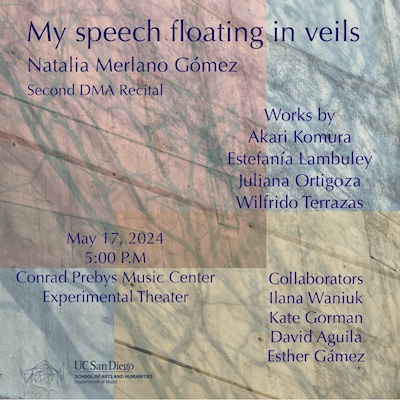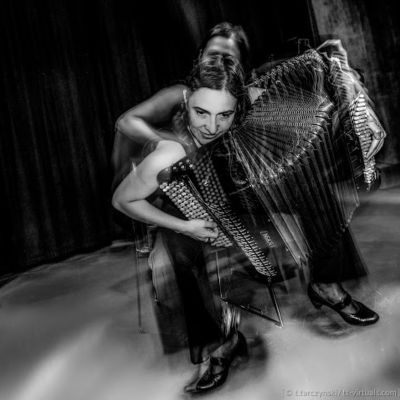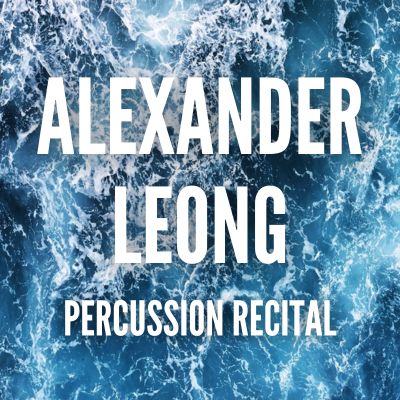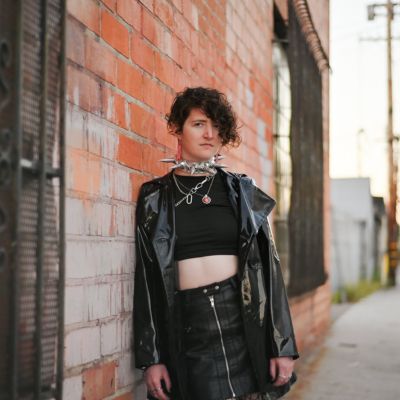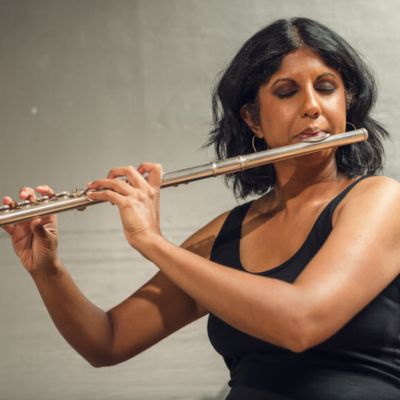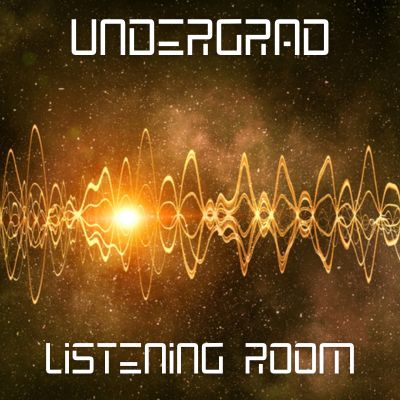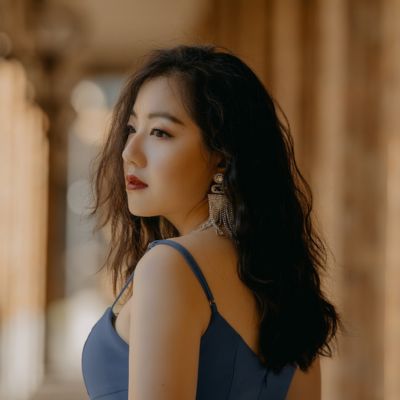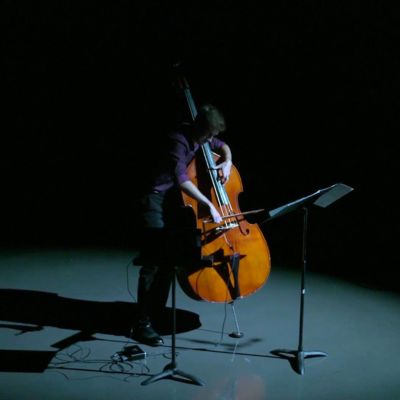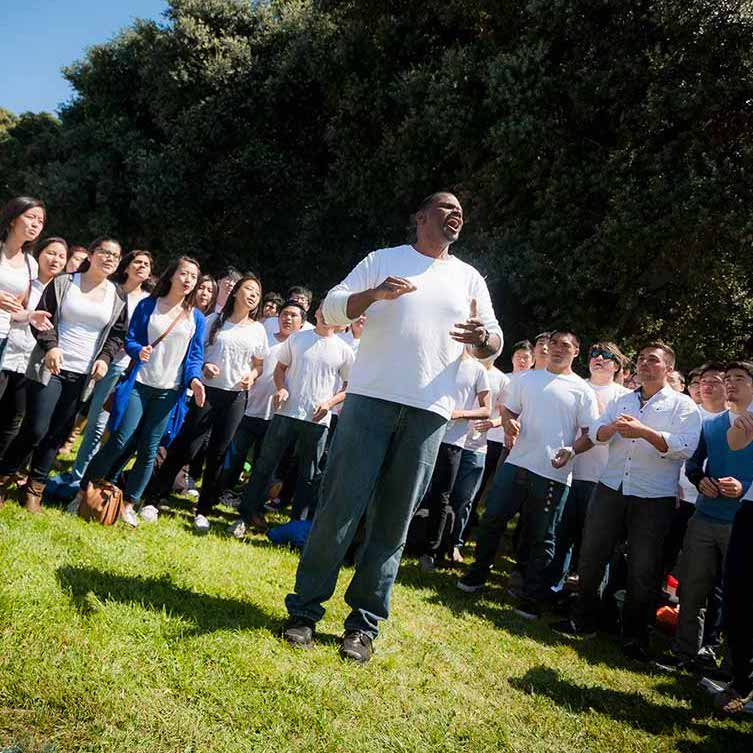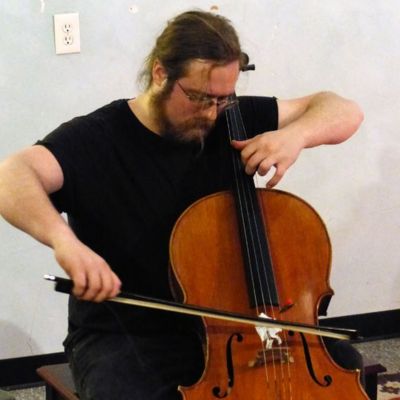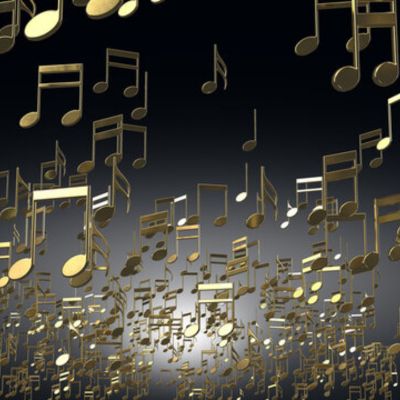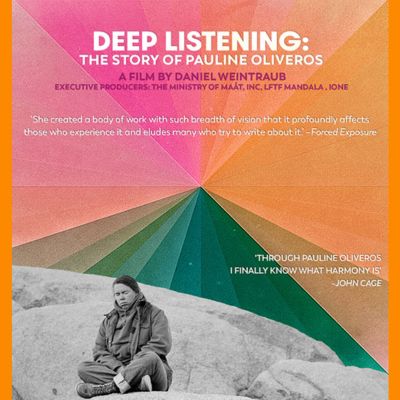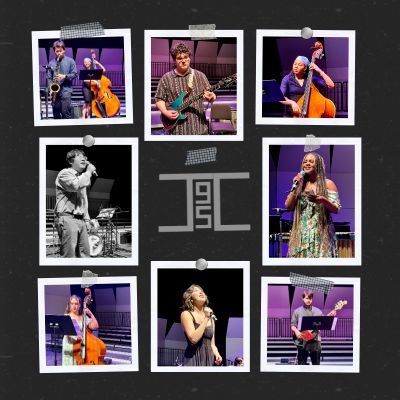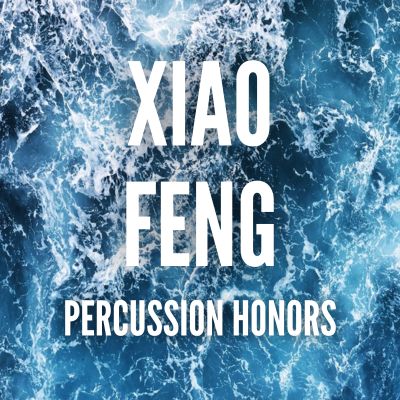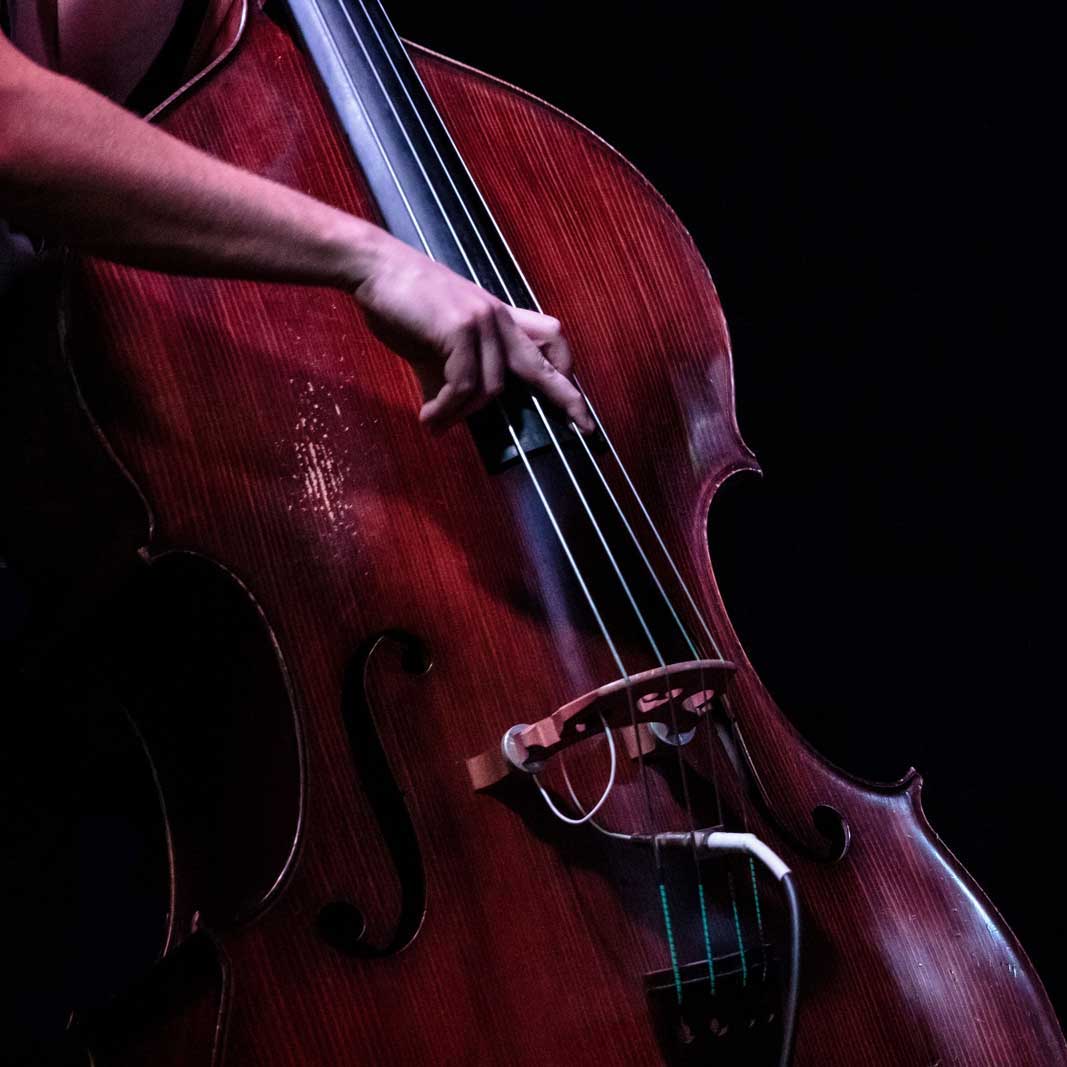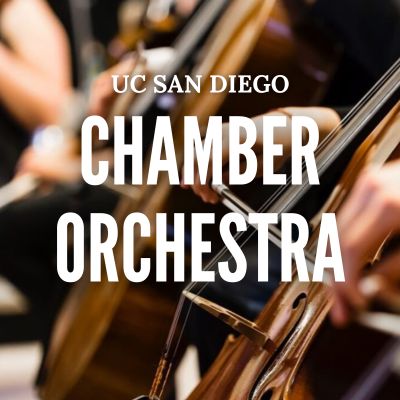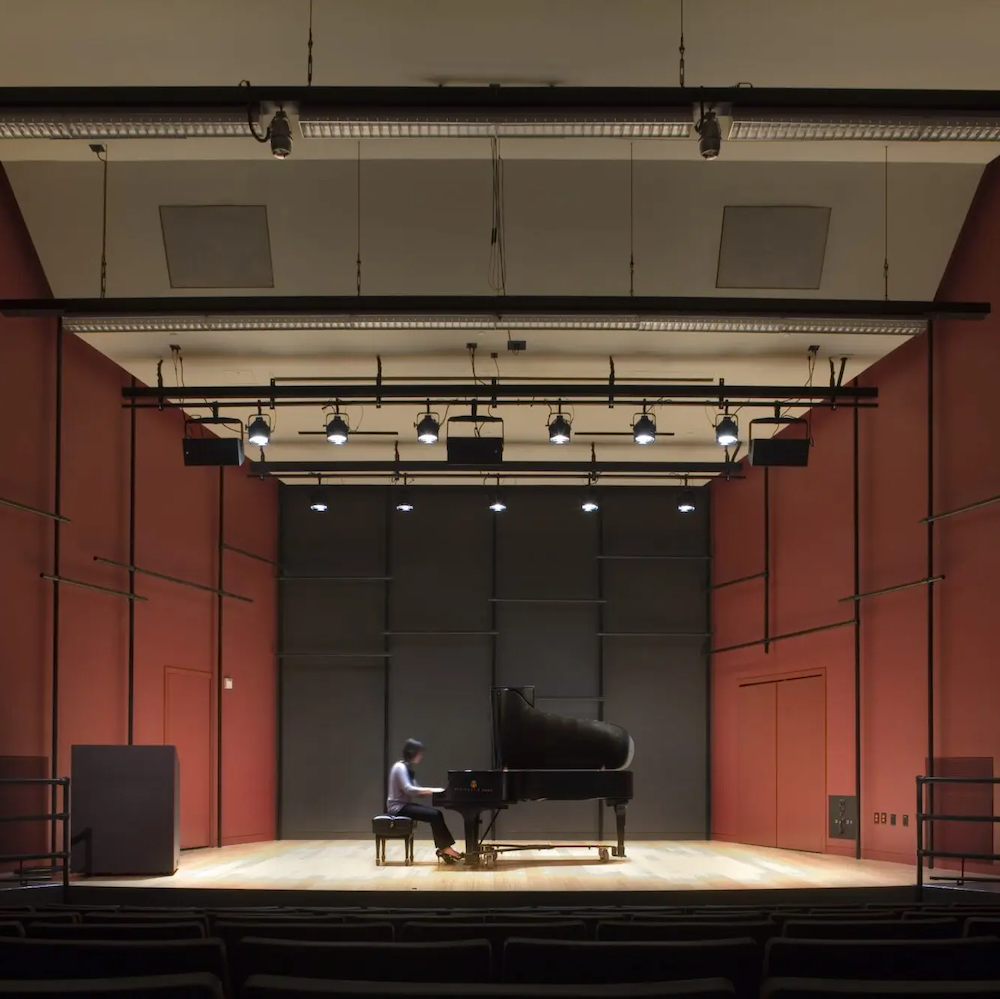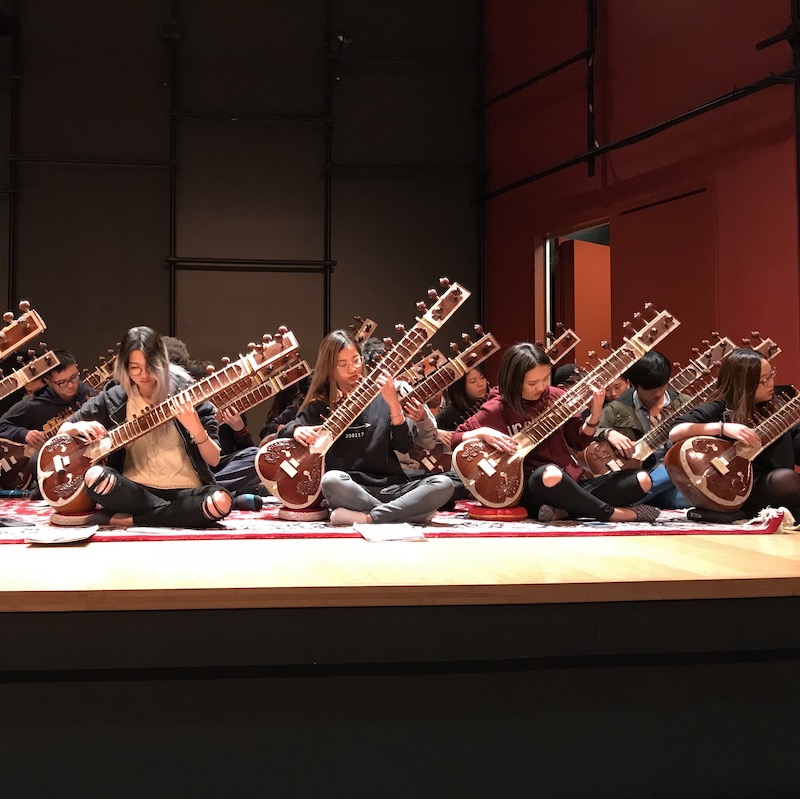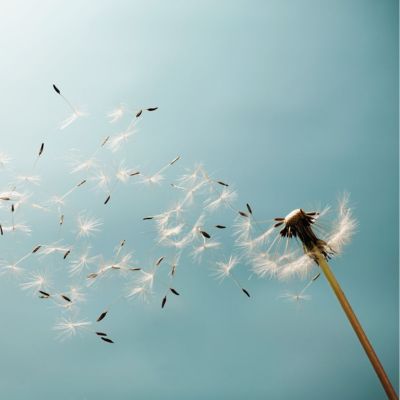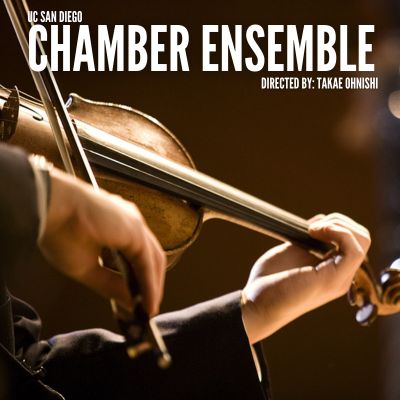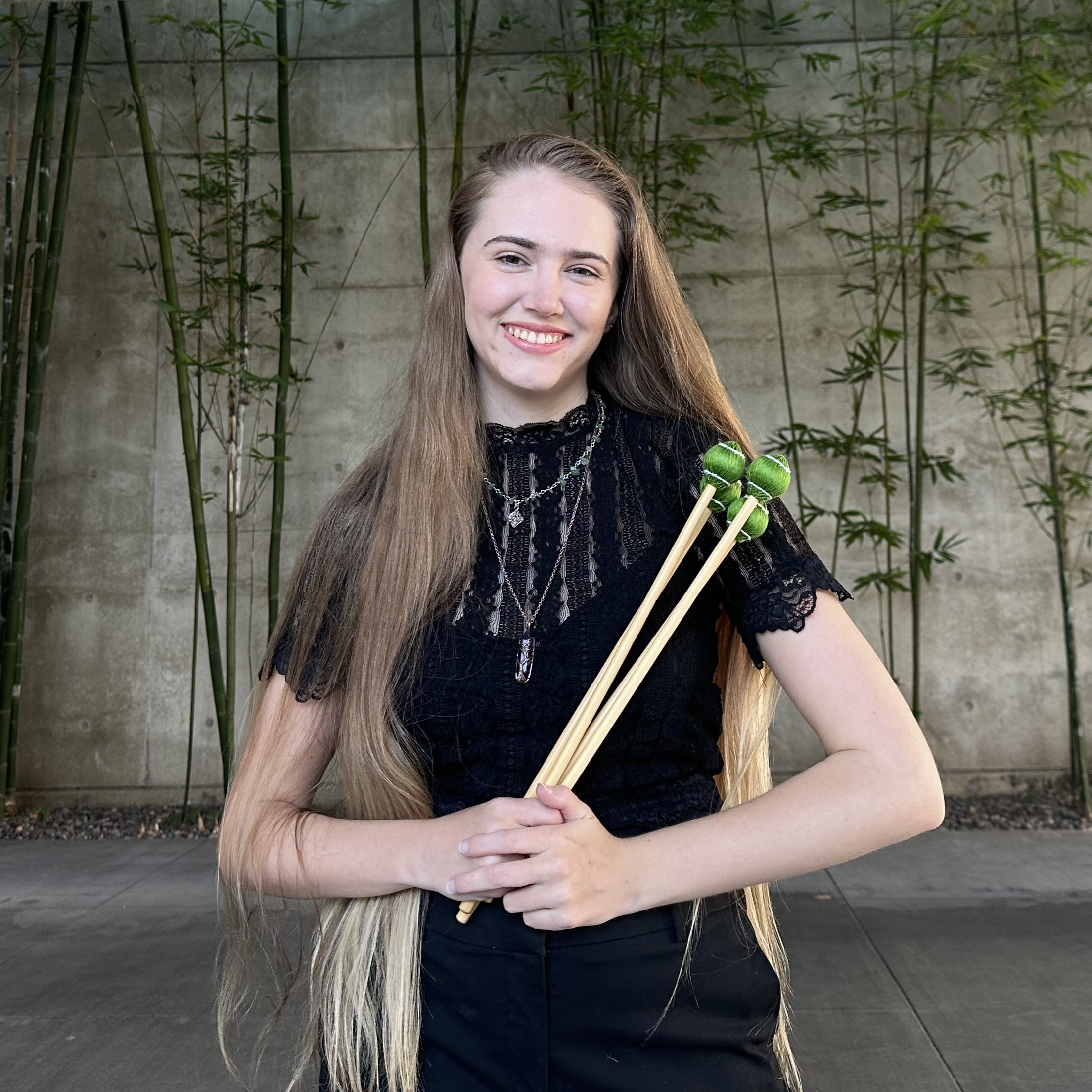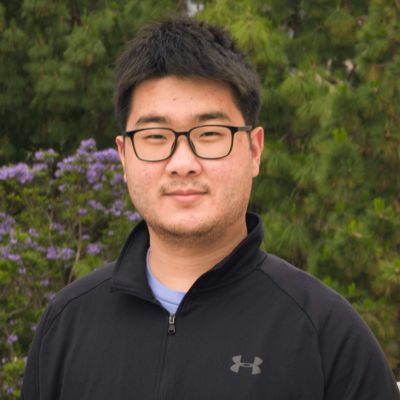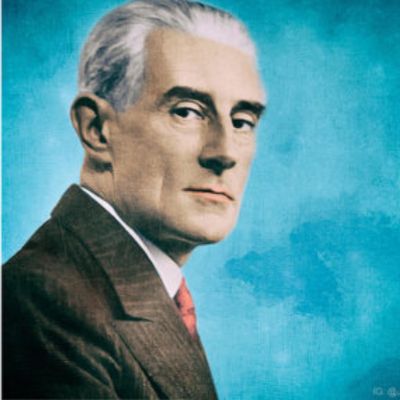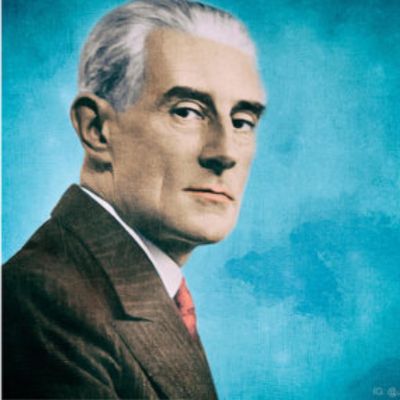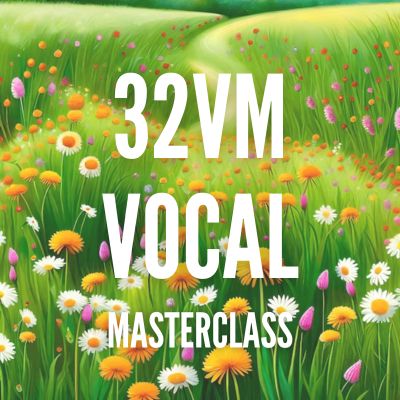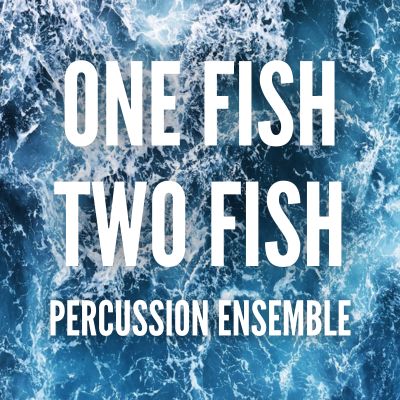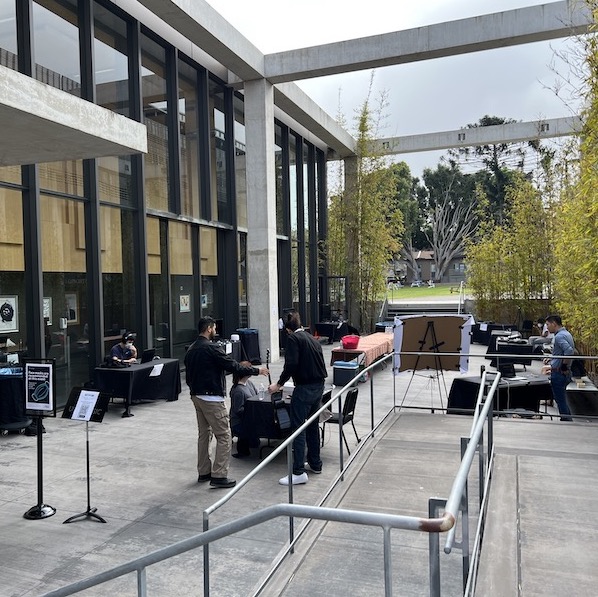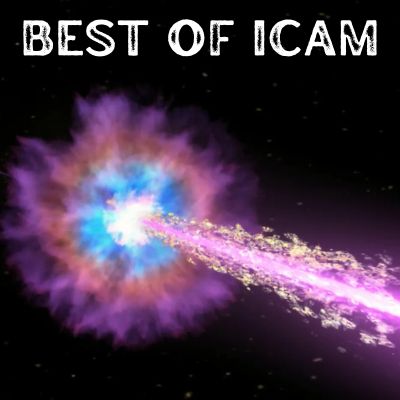Susan Narucki, soprano with Donald Berman, piano
Sunday, April 28th, 2024
3:00 pm
Conrad Prebys Music Center Experimental Theater
General Admission: $20 | UC San Diego Faculty, Staff, Alumni: $15 | All Students : Free with ID Purchase Online
Streaming LIVE for FREE at http://music.ucsd.edu/live
 Event Program (PDF)
Event Program (PDF)
VOICES A pop-up festival of 20th/21st Music for the singing voice
VOICES: GORGEOUS NOTHINGS
Susan Narucki, soprano, and Donald Berman, piano
with guest instrumentalists Alexander Ishov, flutist and Robert Zelickman, clarinet.
gorgeous nothings/las preciosas insignificancias
Longtime collaborators soprano Susan Narucki, soprano and pianist Donald Berman present the second concert in the VOICES series on Sunday, April 28, 2024 at 3 p.m.
The program features one of Mexico's most distinctive composers, Georgina Derbez who has written a remarkable group of songs to late poems of Emily Dickinson (Dickinson's "Envelope Poems") which have been translated into Spanish by the eminent Dickinson scholar Juan Carlos Calvillo. In Derbez' hands, the transcendent poetry is transformed into music that is by turns, ecstatic and intimate.
In addition, a beautifully crafted work for solo piano by post-minimalist Eve Beglarian and three songs of 20th century Dutch composer Henriette Bosmans complete the program.
PROGRAM:
Georgina Derbez L'alphabet (2023) Poem by Albert Giraud
Henriette Bosmans
Dit Island
In den Regen
Teken den hemel in het zand der zee
Eve Beglarian as syllable from sound (2023)
Georgina Derbez Dickinson Songs (2023-24)
Las ruedas de las aves (A821)
Hay mucha quietude (A822)*
Cuando su razón (A 108)*
Un dolor es mas claro (A 109)*
*world premiere
Additional Description:
Facebook Event |
View Google Map |
Add to Google Calendar
Grace Talaski will present a program of mostly brand new works for clarinet and other instruments focusing on multiphonics, vocal effects, and improvisation. Works performed will include:
- Invisible Chisel for clarinet in A and fixed media by Marguerite Brown, world premiere
- What Confronts Us for solo B-flat clarinet by Janet Sit, world premiere
- Hullabaloo! a game for improvisers by Mitchell Carlstrom and Grace Talaski, world premiere. Featuring guest performances by Mitchell Carlstrom, Anita Chandavarkar, and Camilo Zamudio
- Partial Truths for solo B-flat bass clarinet by Evan Ziporyn
Grace's recital will take place on May 2nd at 7:00 p.m. in the Conrad Prebys Concert Hall. Admission is free!
Additional Description:
Facebook Event |
View Google Map |
Add to Google Calendar
Kaija Saariaho Tribute Concert
Friday, May 3rd, 2024
7:00 pm
Conrad Prebys Music Center Experimental Theater
General Admission: $20 | UC San Diego Faculty, Staff, Alumni: $15 | All Students : Free with ID Purchase Online
Streaming LIVE for FREE at http://music.ucsd.edu/live
VOICES A pop-up festival of 20th/21st Music for the singing voice
kallisti
A Tribute to Kaija Saariaho
Miguel Zazueta, Mariana Flores, Natalia Merlano Gomez, Andrew Crappito, Kyle Adam Blair and more.
A concert dedicated to the music of the late Kaija Saariaho, one of contemporary music's most original voices. The concert will include Quatre Instants for voice and piano, Changing Light for soprano and violin, and the rarely heard Tag des Jahrs, for vocal ensemble and others.
Additional Description:
Facebook Event |
View Google Map |
Add to Google Calendar
La Jolla Symphony & Chorus To the Stars
Saturday, May 4th, 2024
7:30 pm
Mandeville Auditorium
For ticket information: lajollasymphony.com
Join La Jolla Symphony and Chorus on May 4-5, 2024, for an ethereal voyage 'To the Stars,' guided by the artistry of our Music Director and Orchestra Conductor, Sameer Patel.
Experience the lushness and angst of Webern's Passacaglia, op. 1, Osvaldo Golijov's mesmerizing Azul, a spellbinding tapestry of sound that takes you on a celestial journey of emotions and colors.
The program concludes with Brahms's Symphony no. 3, op. 90, a musical experience that traverses the realms of human sentiment, from introspection to exultation.
Additional Description:
Facebook Event |
View Google Map |
Add to Google Calendar
La Jolla Symphony & Chorus To the Stars
Sunday, May 5th, 2024
2:00 pm
Mandeville Auditorium
For ticket information: lajollasymphony.com
Join La Jolla Symphony and Chorus on May 4-5, 2024, for an ethereal voyage 'To the Stars,' guided by the artistry of our Music Director and Orchestra Conductor, Sameer Patel.
Experience the lushness and angst of Webern's Passacaglia, op. 1, Osvaldo Golijov's mesmerizing Azul, a spellbinding tapestry of sound that takes you on a celestial journey of emotions and colors.
The program concludes with Brahms's Symphony no. 3, op. 90, a musical experience that traverses the realms of human sentiment, from introspection to exultation.
Additional Description:
Facebook Event |
View Google Map |
Add to Google Calendar
St. Lawrence String Quartet perfoms new works by undergraduate composers including: Kaira Hagan, Gabriel Nelson, Farhad Taraporevala, and Guantong Zhang.
Additional Description:
View Google Map |
Add to Google Calendar
ArtPower presents St. Lawrence String Quartet
Friday, May 10th, 2024
7:30 pm
Conrad Prebys Concert Hall
An ArtPower presentation.
Tickets handled by the Triton Box Office
Hailed by the New Yorker “not simply for the quality of their music making, exalted as it is, but for the joy they take in the act of connection,” the acclaimed St. Lawrence continues its fabled partnership with Stanford, remaining a cultural cornerstone of the University, directing the music department’s Chamber Music Program, concertizing at Stanford Live, hosting a popular summer seminar, and running the Emerging String Quartet Program.”
Program
Mozart: Quartet for Oboe (arranged for saxophone) and strings in F Major, K 370
Britten: Phantasy Quartet for Oboe (arranged for saxophone) and Strings, Op. 2
Steven Banks: Cries, Sighs and Dreams for alto sax and string quartet (2021)
An additional work TBD.
Additional Description:
View Google Map |
Add to Google Calendar
Sarah Saviet is a violinist based in Berlin and dedicated to the performance of contemporary music. She performs as a soloist and chamber musician and is a member of the Saviet/Houston Duo and Ensemble Mosaik.
Sarah’s debut solo album SPUN (Coviello Contemporary) was recently nominated for the Preis der deutschen Schallplattenkritik for new music. She has also released on all that dust and another timbre, and her recording of Liza Lim’s violin concerto ‘Speak, Be Silent,’ with the Riot Ensemble on HCR/NMC records was selected as one of New Yorker Magazine’s ‘Best recordings of 2019.’
Recent performances include duo concerts at Ultraschall and AFEKT festivals, soloist with Klangforum Wien as part of Märzmusik in the Berliner Philharmonie, and the premiere of Rebecca Saunders and Enno Poppe’s duo Taste at Witten Festival 2022. Sarah has held visiting artist positions in the composition departments of the University of the Arts Berlin, Huddersfield University, at Goldsmith University London with the Riot Ensemble, and at Harvard University with ELISION Ensemble. She has given workshops on contemporary violin technique at the Manhattan School of Music University of the Arts Berlin, Manhattan School of Music, and Darmstadt Akademie für Tonkunst, and held artist residencies at Aldeburgh Music with composers Lawrence Dunn, Jack Sheen, and artist Rowland Hill.
Additional Description:
View Google Map |
Add to Google Calendar
UC San Diego Gospel Choir
Thursday, May 30th, 2024
8:00 pm
Mandeville Auditorium
General: $20 | UC San Diego Faculty, Staff, Alumni: $10 | All Students : Free with ID Purchase Online
Streaming LIVE for FREE at http://music.ucsd.edu/live
DEEP LISTENING: THE STORY OF PAULINE OLIVEROS
Friday, May 31st, 2024
7:30 pm
Mandeville Auditorium
General: $20 | UC San Diego Faculty, Staff, Alumni: $10 | All Students : Free with ID Purchase Online
Streaming LIVE for FREE at http://music.ucsd.edu/live
Saturday Night Jazz - 95JC Jazz Ensemble
Saturday, June 1st, 2024
7:00 pm
Mandeville Auditorium
General: $20 | UC San Diego Faculty, Staff, Alumni: $10 | All Students : Free with ID Purchase Online
Streaming LIVE for FREE at http://music.ucsd.edu/live
UC San Diego Chamber Orchestra
Tuesday, June 4th, 2024
8:00 pm
Mandeville Auditorium
General: $20 | UC San Diego Faculty, Staff, Alumni: $10 | All Students : Free with ID Purchase Online
Streaming LIVE for FREE at http://music.ucsd.edu/live
UC San Diego Wind Ensemble
Thursday, June 6th, 2024
7:30 pm
Mandeville Auditorium
General: $20 | UC San Diego Faculty, Staff, Alumni: $10 | All Students : Free with ID Purchase Online
Streaming LIVE for FREE at http://music.ucsd.edu/live
La Jolla Symphony & Chorus Time Present and Time Past
Saturday, June 8th, 2024
7:30 pm
Mandeville Auditorium
For ticket information: lajollasymphony.com
La Jolla Symphony & Chorus Time Present and Time Past
Sunday, June 9th, 2024
2:00 pm
Mandeville Auditorium
For ticket information: lajollasymphony.com
Most Department of Music events are general admission, FREE and open to the public. Ticketed performances are listed above and available for sale online or via the Music Box Office: (858) 534-3448.
In an effort to conserve resources and reduce paper waste, we post our event programs as electronic documents on this page (see listings). If you are not at a computer, you can easily access this page by scanning the QR code at right (for iPhones we recommend using the built-in camera app). Programs for past events dating back to October 2008 are available in our events archive with links below.
PLEASE NOTE: As an experimental and new music department, much of our music is very intimate and quiet, for this reason, we request that students preparing concert reports refrain from writing or rustling papers during events. We also respect the artistry of our musicians and adhere to a strict policy of NO LATE SEATING. Guests arriving late may be turned away or will be asked to enter between pieces.
Copies of events performed by the faculty and students of UC San Diego Department of Music are available for educational use only by the performers, composers and faculty involved in the event pursuit to all applicable copyright laws. View our Dubbing Policy for more information.


